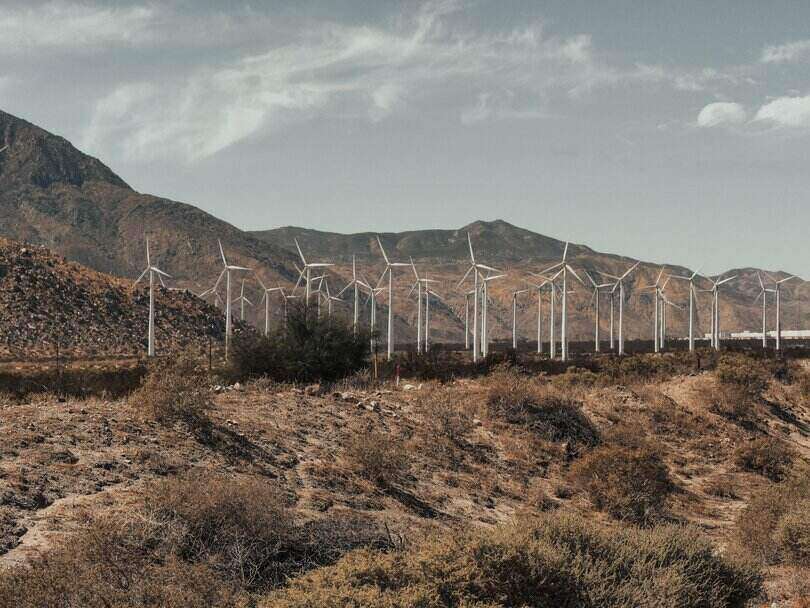In recent years, there’s been an increased focus on sustainable living for a good reason. Our current way of life is not sustainable, both environmentally and socially. If we want to ensure that future generations can enjoy the same high quality of life we have today, we need to start making changes. Sustainable living can seem daunting, but it doesn’t have to be. If you’re new, this guide will answer all of your queries.
What is sustainable living? Why should you care about it?
The simplest definition of sustainable living is meeting our current needs without compromising the ability of future generations to meet their own needs. In other words, it’s about living in a way that doesn’t deplete the earth’s resources or damage the environment.
The food waste, carbon footprint, water pollution, and air pollution created by our current way of life are not sustainable. If we want to protect the planet and ensure a clean environment for future generations, we must start making changes now.
There are many reasons why you should care about sustainable living.
Reduce pollution and conserve resources
Looking at today’s natural resources, it is evident that the way we live is not sustainable. The pollution and waste we create damage our planet. Sustainable living practices can help reduce pollution and conserve resources. When the earth’s natural resources are depleted, it will be difficult for future generations to meet their needs. When you practice sustainable living, you are helping to protect the planet for future generations.
Help fight climate change
Climate change is one of the biggest environmental threats we face today. It is caused by the greenhouse gases released into the atmosphere when we burn fossil fuels. These gases trap heat in the atmosphere, causing the earth’s temperature to rise. This can lead to devastating effects, such as more extreme weather conditions, rising sea levels, and extinction of plant and animal species. More sustainable lifestyle choices can help reduce your carbon footprint and fight climate change.
Promote social and economic development
Sustainable living practices can also promote social and economic development. For example, fair trade practices help improve workers’ lives in developing countries by ensuring they receive a fair wage. Sustainable agriculture can also help boost the economies of developing countries by providing a steady supply of food and creating jobs. When the sustainable living journey starts with just one person, it can have a ripple effect that extends far beyond their own life.

Improve the quality of life
Living a sustainable lifestyle can also improve your quality of life. When you make eco-friendly choices, such as eating organic food or using renewable energy, you can reduce your exposure to toxins and pollutants. This can lead to better health and overall well-being. Sustainable living can also help you save money in the long run. For example, investing in energy-efficient appliances can save you money on your energy bills.
Set a good example for others
Sustainable living is not only about benefiting the environment and yourself. It’s also about setting a good example for others. When you live sustainably, you inspire those around you to do the same. You can help create a movement towards a more sustainable world.
For example, when you use plastic bags, others see that it’s acceptable. But when you refuse plastic bags and use reusable ones instead, you’re sending a message that plastic is unnecessary. This can encourage others to make more sustainable choices in their own lives.
How to make small changes in your everyday life to become more sustainable
Now that you know why sustainable living is so important, you might be wondering how you can make changes in your everyday life to become more sustainable. Luckily, you can make many small changes that will have a big impact. Here are some sustainable living tips to get you started.
Use less water
You can save water by making simple changes in your daily routine, such as turning the faucet off while brushing your teeth or taking shorter showers. You can also reduce water usage by using more efficient appliances, such as low-flow showerheads and toilets. A sustainable future is not only what we make it but also what we do to conserve our resources.

Save energy
You can save energy by making small changes in your home, such as turning off lights when you leave a room or using a power strip to turn off all your electronics with one switch easily. You can also invest in energy-efficient appliances and light bulbs. By using less energy, you’ll not only save money but also help reduce your carbon footprint.
Reduce, reuse, and recycle
One of the best ways to live sustainably is to reduce your waste. You can avoid single-use products like disposable coffee cups and plastic straws. You can reuse items, such as using a reusable water bottle or shopping bag, instead of throwing them away. And when you do have waste, be sure to recycle it.
Compost
From the food we eat to the leaves that fall from the trees, a lot of organic matter can be turned into compost. Composting is a great way to reduce waste and provide nutrients for your plants. Suppose you have a garden. In that case, you can use compost to fertilise your plants and help them grow. Just like the fossil fuels we use to power our homes and cars, the nutrients in the soil are finite. So it’s important to do what we can to preserve them.
Drive less
The transportation sector is one of the most significant contributors to greenhouse gas emissions. And a large portion of that comes from passenger cars. If you want to live sustainably, one of the best things you can do is drive less. You can walk when possible. Not only will this help reduce emissions, but it can also be good for your health.
Educate yourself and others about sustainable living
If you want to live sustainably, it’s important to educate yourself about the issue. Learn about the things that you can do to make a difference and then share that information with others. The more people are aware of sustainable living practices, the more likely we will make progress in saving our planet.
Tips for reducing your environmental impact and saving money at the same time
When it comes to sustainable living, there are many ways to reduce your environmental impact and save money simultaneously. Here are some tips:
Go meat-free on Mondays
Usually, the meal that has the biggest environmental impact is a meat-based dish. So, one day each week, go without meat and focus on eating more plant-based foods. Not only will this be better for the environment, but it’ll also save you money since meat is usually one of the most expensive ingredients in a dish.
Shop local and in season
When grocery shopping, try to buy locally-grown and in-season produce. Not only is this better for the environment (food miles!), but it’s also usually cheaper since the product doesn’t have to be shipped from far away. If you can’t find local and in-season produce, look for certified organic items.
Take shorter showers
One of the easiest ways to save water and energy is to take shorter showers. If you’re not used to it, start by turning the water off while you’re lathering up, and then turn it back on to rinse. You could also try installing a low-flow shower head to reduce water and energy consumption.
Unplug your devices and electronics when you’re not using them
Even when turned off, electronics and appliances can still use up energy if plugged in. So, make sure to unplug them when you’re not using them. This simple tip can help you save significant energy and money over time. You can try using a power strip so you can easily switch off multiple devices with one click.

Take public transport, ride a bike, or walk whenever possible
If you can, avoid driving as much as possible. Instead, take public transport, ride a bike or walk. Not only will this help reduce your carbon footprint, but it’ll also give you some exercise and fresh air. Suppose you live too far from work or the shops to walk or cycle; look into carpooling or ridesharing options. Or if you need to use a car, see if you can join a car share scheme.
Install energy-efficient light bulbs
If you haven’t already, switch to energy-efficient LED light bulbs. They use less energy and last much longer than traditional incandescent bulbs. In the long run, making this switch can help you save a lot of money on your energy bill.
Wash your clothes in cold water
Washing your clothes in cold water can save you money and reduce your carbon footprint. Most of the energy that’s used to wash clothes comes from heating the water. So, by washing in cold water, you can save energy (and money). Just read the care labels on your clothes first since some items should only be washed in warm or hot water.
Ways to get involved in the sustainable living community in your area
Even when turned off, electronics and appliances can still use up energy if plugged in. So, make sure to unplug them when you’re not using them. This simple tip can help you save significant energy and money over time. You can try using a power strip so you can easily switch off multiple devices with one click.
Join or start a community garden
Community gardens are a great way to meet people interested in sustainable living. They’re also great for getting your hands dirty and growing your food. If there’s not already a community garden in your area, you could start one!
Volunteer for a local environmental organisation
Community gardens are a great way to meet people interested in sustainable living. They’re also great for getting your hands dirty and growing your food. If there’s not already a community garden in your area, you could start one!
Join a CSA
Community Supported Agriculture (CSA) programs are becoming more popular as people become interested in sustainable living. With a CSA, you pay a farmer for a share of their produce. This allows the farmer to get the money they need to start the growing season, and you get fresh, local produce throughout the season.
Shop at farmer's markets or join a food co-op
Farmer’s markets and food co-ops are great places to buy local, sustainable food. Farmer’s markets typically have a wide variety of vendors so that you can find everything from fruits and vegetables to meat and cheese. Food co-ops are member-owned organisations that sell natural and organic foods. They’re often cheaper than traditional grocery stores and typically have a wide variety of local and sustainable products.
Use Carbon/Neutral
Using Carbon/Neutral is a great way to offset your carbon footprint and support more sustainable living initiatives. Connecting your bank account to our partner, Tink, Carbon/Neutral can automatically calculate your carbon footprint. From there, you can see which areas you can improve on and choose which carbon-offsetting project you want to support from the list of options we have available.
Final Thoughts
The environmental sustainability movement has grown in recent years as more and more people have become interested in living a sustainable lifestyle. As the environmental footprint of our society becomes more evident, there is a greater need for individuals to take steps toward living a sustainable lifestyle.
As the sustainable development goals (SDGs) show, a lot of work must be done to create a more sustainable world. But it’s important to remember that every journey starts with a single step. You don’t have to make all the changes at once. Just start with one small change and build from there. Every sustainable step you take is a step in the right direction.
Take your first step by joining Carbon/Neutral and our initiatives today! Sign up and start living sustainably!
